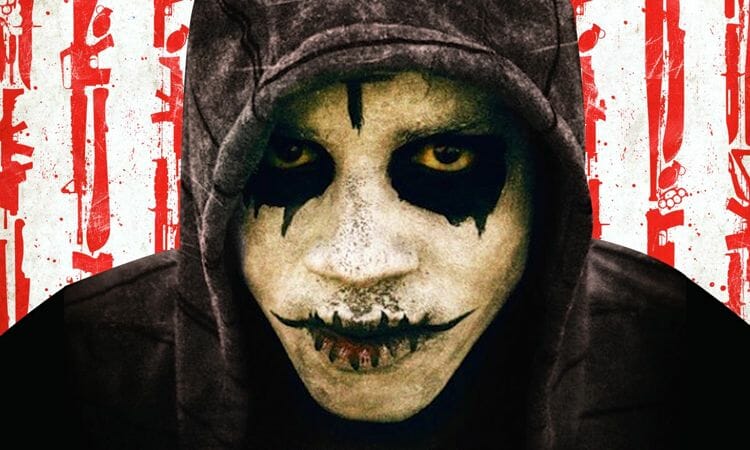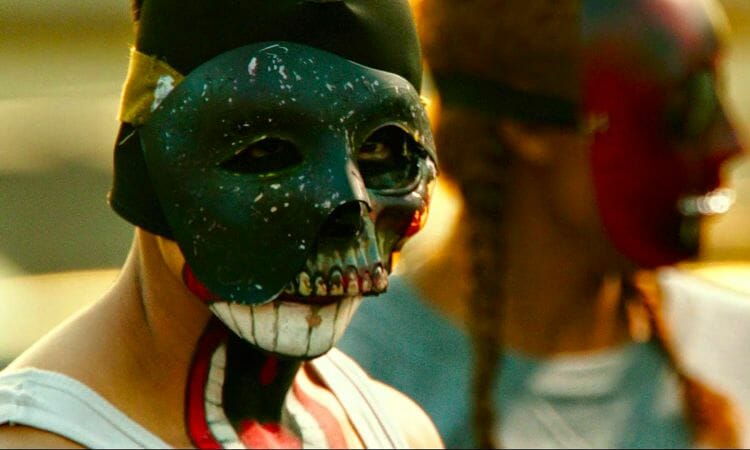Sign up for the
TSL Newsletter
and get $50 off Final Draft 12
By Michelle Donnelly · July 21, 2014


The year is 2023. Unemployment and crime are at all time lows. America is prosperous. It’s a seemingly historical time in American society. The exception? One night a year the United States government has sanctioned violence of all kind, including murder. The purpose? The so-called annual purge allows inherently violent people to let out their aggression and desire for violence, which results in a more psychologically stable populace. Or so say the New Founding Fathers, who now govern the United States. Those purged are considered sacrificial; their death makes the world a better place. Those that purge have cleansed their souls of violence. The 2023 purge finds a radical group bent on fighting against a government they claim has turned its back on democracy as it only profits from the elimination of the poor. The purge also unites a group of five as they try to survive the twelve hours of wanton, unrestricted violence.
Nothing is as is seems in The Purge: Anarchy. The bad guys are bad, but those who should be good are worse. The government, the wealthy and the privileged show themselves to be even more heinous than common criminals. Then there are those who, when punishment exists, are good but turn to crime only because the opportunity is readily available to settle a conflict. In a twist, the film juxtaposes extreme violence with acts of kindness. But then even these acts of kindness are tainted when you consider the good deed is only a momentary reprieve before that same person readies to commit a cruel and savage act.
The Purge: Anarchy is the follow up to last year’s The Purge, both written and directed by James DeMonaco. A self confessed John Carpenter fan, DeMonaco has created the thinking man’s slasher flick. The difference? The slasher films of yesteryear created scenarios of death and mayhem orchestrated by an unknown character whose motivation usually only became clear in the final scenes while their blindsided victims held out hope for their fate. DeMonaco, on the other hand, has fabricated a universe where victims are painfully aware of what purge night can bring and while they may not know specific details about their potential aggressors, its clear their motivation is to kill them. All this, against a backdrop of questions about politics and society.
The Purge: Anarchy clearly entices you to consider the role of government. To consider whether, in defense of protecting its citizens and maintaining a civil, if not flourishing society, it’s appropriate to commit despicable acts. The New Founding Fathers feel justified as they point out that the country voted for change. They purport that America is now a nation reborn. In actuality, the peaceful society is an illusion. Its citizens distorted by prosperity. Race and class warfare is only enflamed as the elimination of morality and politically correct is sanctioned. Worst of all, the citizenry has begun to see the purge as their right granted by the New Founding Fathers. A right that now, no one can take away.
Most performances in the film are strong. One to highlight though, is Frank Grillo who plays Leo Barnes, a man bent on avenging his son’s death. Grillo is one of the high points of the film. He manages to capture the anger and maliciousness of one who purges but to his credit, he interjects an emotion that the audience will latch on to. He’s demented but also shows the humanity we hope exists.
I’m torn between loving and hating this movie. Initially, I was turned off by what seems like gratuitous torture porn. It then became apparent to me that my discomfort over DeMonaco’s depiction of violence is exactly what he intended. The film’s violence only mirrors our own society. DeMonaco is challenging an audience that all too often looks away from violence to instead feel the senseless, futile nature of brutality.
In the end, while the movie might have done its job making a social commentary, it’s doubtful that those who enjoy such movies won’t be bothered by the intense and realistic violence. Alternately, those who crave action (even if bloody) in their films may find the social commentary preachy and unnecessary if they only want to be entertained and not bothered by discussions of morality and politics. Enough moviegoers saw The Purge, compelling the studio to sign on for one more. Successful box office numbers for The Purge: Anarchy may prove that DeMonaco has found a niche.